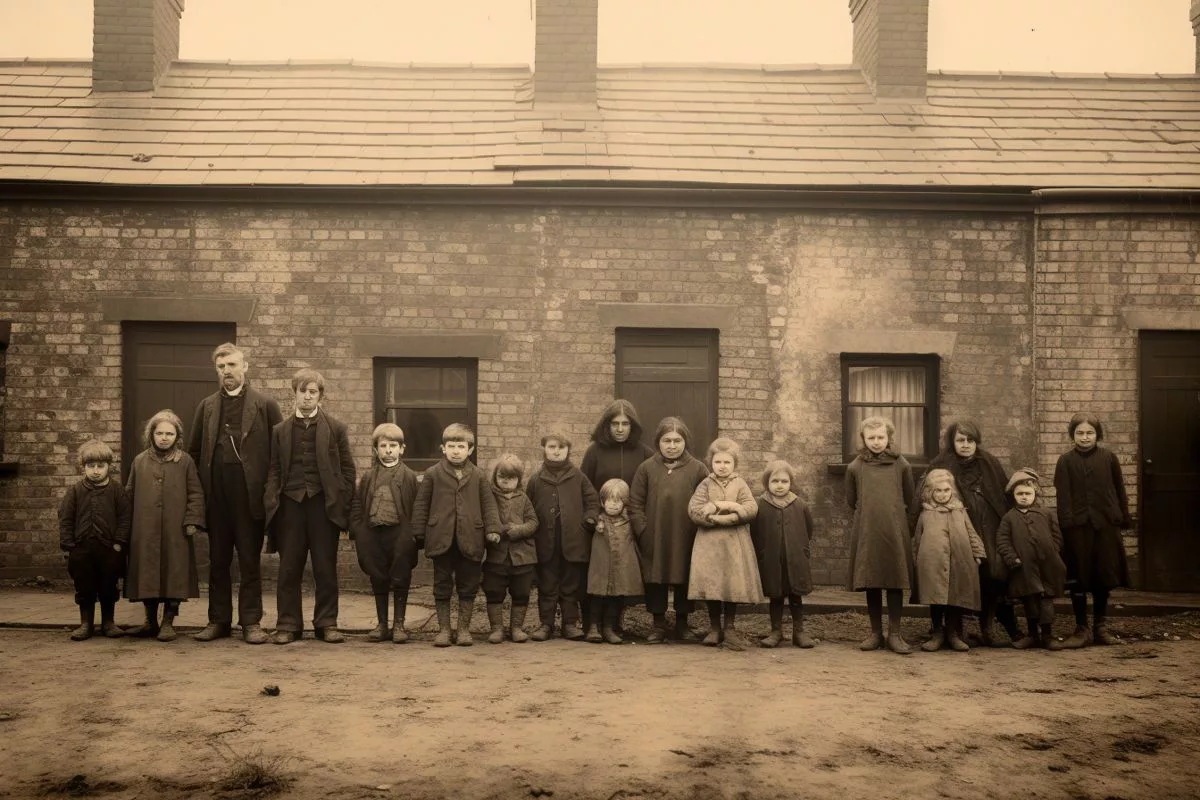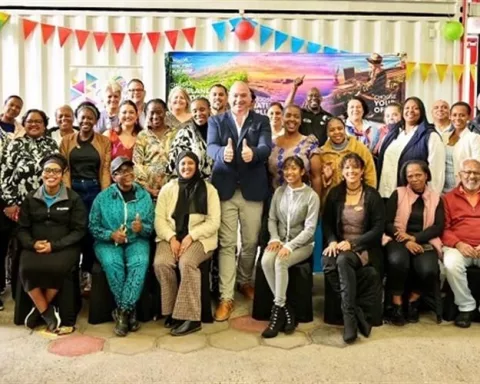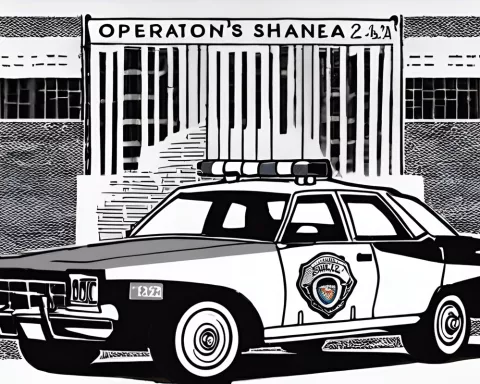The Searle Street cottages in Cape Town, South Africa, are at the center of a legal battle launched by six families to prevent eviction and secure their right to remain in their homes. The cottages, situated on church land, were sold to a private developer, highlighting persistent issues of race, class, and the commodification of housing in the city. The case underscores the ongoing struggle for social justice and equal access to housing in Cape Town, and serves as a reminder of the enduring legacy of apartheid.
What is the Searle Street cottages case in Cape Town about?
The Searle Street cottages in Cape Town, South Africa, are home to six families who have launched a legal appeal to force the state to expropriate their homes and prevent eviction. The cottages are situated on church land, but the Sisters of the Holy Cross sold them to a private developer, prompting the current occupants to contest the sale and request state intervention. The case highlights persistent issues of race, class, and the commodification of housing, and symbolizes the ongoing struggle for social justice and equal access to housing in Cape Town.
A Historical Haven Amidst Cape Town’s Turmoil
Nestled in the bustling city of Cape Town, South Africa, a collection of modest cottages stand testament to the perseverance and resilience of their inhabitants. The Searle Street cottages in District Six are home to six families who have launched a bold legal appeal in the Western Cape High Court. Their aim is to force the state to expropriate their homes, preventing eviction and ensuring their right to remain. Over the past century, these cottages have housed three generations of families who have endured apartheid-era evictions and continue to embody the spirit of resistance and optimism.
Remarkably, the cottages are situated on church land, which was spared from the ruthless eviction orders during the Group Areas Act due to the intervention of the Order of the Sisters of the Holy Cross. However, in 2022, the Sisters sold the cottages to a private developer, prompting the current occupants to contest the sale and request state intervention. The Searle Street cottages’ story is emblematic of the broader issues surrounding race, socioeconomic disparity, and the ongoing battle for affordable housing in Cape Town.
Dr. Jonty Cogger, an attorney at Ndifuna Ukwazi, emphasizes the case’s multifaceted significance. Firstly, it highlights the persistent issues of race and class, given that the cottages were acquired by a white developer planning to raze them for profit. The affected families are working-class and of mixed race, illustrating how access to decent housing in Cape Town remains intrinsically linked to race and income – a disheartening echo of apartheid that still reverberates in South African society.
The Housing Market as a Barrier to Equality
The second facet of the Searle Street cottages case concerns the commodification of housing. In Cape Town, housing is frequently viewed as a financial asset, only attainable by a select few due to the city’s extreme wealth inequality. While the city has begun to prioritize social housing in well-situated areas like Woodstock, Salt River, and Pinelands, it struggles to counteract the exclusionary practices of the private property sector.
The third dimension of the case pertains to the government’s approach to housing and its relationship with the private property market. Although the private sector has no legal obligation to provide affordable housing, the state is under immense pressure to address this pressing issue. However, bureaucratic delays often lead to the provision of emergency housing solutions, typically located in peripheral areas, which only serve to exacerbate the families’ housing predicaments. These delays also result in the illegal occupation of public land by desperate families.
In this challenging scenario, the government is trapped in a vicious cycle: promoting expensive housing intensifies the need for emergency housing, further deepening the housing crisis. To break this cycle, a fundamental paradigm shift is needed – viewing land and housing as social goods that are inextricably connected to the essential human rights of life and dignity.
Legal Battle: A Potential Solution and Lasting Impact
The ongoing legal struggle to compel the state to expropriate the Searle Street cottages could provide a solution within the larger context of apartheid’s enduring legacy. Pursuing this course of action may shield these families from the trauma of eviction, this time driven by market forces rather than political ones.
In the broader context, the Searle Street cottages symbolize the ongoing struggle for social justice and equal access to housing in Cape Town. As the families residing there maintain their resolve and demand state intervention, their tenacity sends a resounding message to the countless others who grapple with their rights and dignity in the face of adversity.
The Searle Street cottages, imbued with a rich history and a spirit of defiance, serve as a stark reminder that the quest for equality and social justice is far from complete. As Cape Town confronts the challenges of race, class, and housing, the story of these families offers a glimmer of hope and inspiration for a more equitable future.
1. What is the Searle Street cottages case in Cape Town about?
The Searle Street cottages in Cape Town, South Africa, are at the center of a legal battle launched by six families to prevent eviction and secure their right to remain in their homes. The cottages, situated on church land, were sold to a private developer, highlighting persistent issues of race, class, and the commodification of housing in the city.
2. Who are the current occupants of the Searle Street cottages?
The Searle Street cottages are currently home to six families who have launched a legal appeal to force the state to expropriate their homes and prevent eviction. These families have lived in the cottages for three generations and have endured apartheid-era evictions.
3. Why are the Searle Street cottages important?
The Searle Street cottages’ story is emblematic of the broader issues surrounding race, socioeconomic disparity, and the ongoing battle for affordable housing in Cape Town. The case also highlights the persistent issues of race and class, given that the cottages were acquired by a white developer planning to raze them for profit.
4. What is the significance of the sale of the cottages to a private developer?
The sale of the cottages to a private developer highlights the commodification of housing in Cape Town, where housing is frequently viewed as a financial asset, only attainable by a select few due to the city’s extreme wealth inequality.
5. What is the government’s approach to housing in Cape Town?
Although the private sector has no legal obligation to provide affordable housing, the state is under immense pressure to address this pressing issue. However, bureaucratic delays often lead to the provision of emergency housing solutions, typically located in peripheral areas, which only serve to exacerbate the families’ housing predicaments.
6. What is needed to address the housing crisis in Cape Town?
A fundamental paradigm shift is needed – viewing land and housing as social goods that are inextricably connected to the essential human rights of life and dignity.
7. What could the legal struggle to compel the state to expropriate the Searle Street cottages accomplish?
The ongoing legal struggle to compel the state to expropriate the Searle Street cottages could provide a solution within the larger context of apartheid’s enduring legacy. Pursuing this course of action may shield these families from the trauma of eviction, this time driven by market forces rather than political ones.
8. What message do the families residing at the Searle Street cottages send to others who grapple with their housing rights?
As the families residing at the Searle Street cottages maintain their resolve and demand state intervention, their tenacity sends a resounding message to the countless others who grapple with their rights and dignity in the face of adversity.












